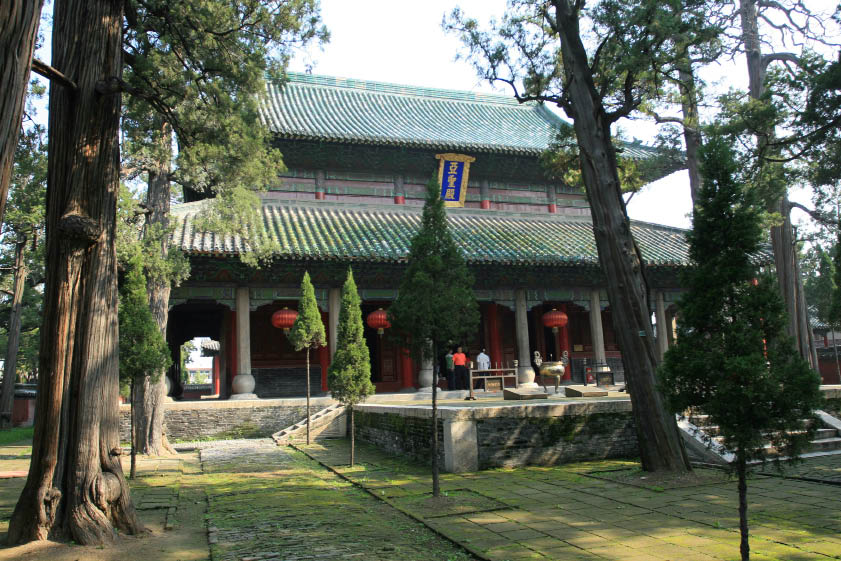|
Mencius’ Views on Human Nature
 |
| Mencius Temple in Shandong’s Zoucheng. China Foto Press |
In order to demonstrate the feasibility of governing by humane love, Mencius extensively studied human nature. Mencius believes that it is a human instinct to sympathize with the weak and those in suffering, since one can feel empathy with other people or even animals. He gave the example that virtually every human being would automatically rush to the rescue on seeing a child fall into a well, compassion being part of human nature. Mencius takes this sentiment as a motivator for good deeds, one that can develop into understanding and concern for others. The inclination to feel sympathy for other people and other beings is the seed of kindness in one’s heart and therefore the foundation of morality.
Confucius emphasized interpersonal relationships and the ties between mankind and the world, stressing for example that family reverence is the proper behavior for dealing with elders. Mencius developed this to say that all people are born with innate moral awareness and virtues, and hence concluding that all are born kind-hearted. He calls this predisposition to goodness “the four moral beginnings” (siduan 四端): commiseration; sense of shame and revulsion; a reverential attitude toward others; sense of right and wrong. Mencius sees these as fundamental elements of human nature that can develop into the supreme human virtues – of benevolence (ren 仁), righteousness (yi 义), ritual propriety or etiquette (li 礼), and wisdom (zhi 智).
Of the four “moral beginnings,” commiseration ranks the highest. Saving a child from drowning is an altruistic action and since people can help others without being motivated by personal gain, it follows that humanity is a heaven-endowed gift, he argues.
As for the other three “moral beginnings,” the sense of shame and revulsion – a kind of awareness of misdoings – means humans are born with a sense of shame. Modesty and a reverential attitude toward others is an innate understanding of the ritual propriety that guides proper behavior. The sense of right and wrong has not only to do with morals, but also with judging human affairs.
Mencius holds that the four moral beginnings are the basis for the human existence and puts the feeling of commiseration above that of a sense of right and wrong: i.e. he emphasizes feelings above knowledge. This also proves that the core of his thinking is governance by humane love, not an understanding of the world itself.
Mencius reiterates that self-reflection is crucial for maintaining one’s natural goodness, since people often inadvertently stray away from it just as they may carelessly lose a hen or a dog. For this reason, Mencius urges people to “retrieve one’s lost heart.” Cultivating humane love should begin with family members. “Love your parents and children, and treat all aged and young who are not kin in the same loving fashion.” He suggests that one should preserve and reinforce this inherent goodness at night, and protect it from distractions and temptations during the day. Through sustained cultivation, one can eventually achieve great moral energy and be unswayed by temptations of wealth or fame, by the pressure of poverty or violent intimidation. Mencius insists on fostering this moral energy because he faces the tough challenge of putting into political practice the concept of governing by humane love. To justify his idea, he must place the value of morality over worldly profit. His prioritizing of inner rectitude had a major impact on Confucianists to come, especially those frustrated in handling worldly matters.
For Mencius, sustaining one’s original goodness is the precondition to comprehend the diverse dimensions of one’s natural tendencies, and hence the first step to a comprehensive understanding of the wider world. It is essential to an appreciation of things as they are and not being at odds with life’s events.
WEN HAIMING is an associate professor at the School of Philosophy of Renmin University of China. He has a doctorate from the University of Hawaii and specializes in Chinese and Comparative Philosophy.
| 